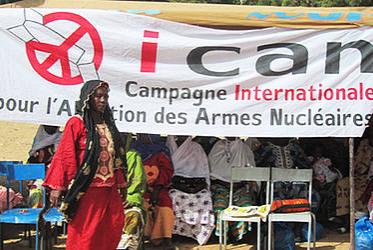Displaying 81 - 100 of 154
Religious leaders urge a ban on fully autonomous weapons
02 April 2015
Momentum builds for ban on nuclear weapons
16 December 2014
WCC general secretary welcomes Iran nuclear agreement
27 November 2013
WCC general secretary congratulates OPCW on Nobel Peace Prize
14 October 2013
WCC expresses concern at rising tensions over Korean peninsula
15 February 2013
Nuclear tragedy finds a human face in Fukushima
19 December 2012
WCC hails actions to curb cluster bombs and nuclear weapons
29 November 2011





